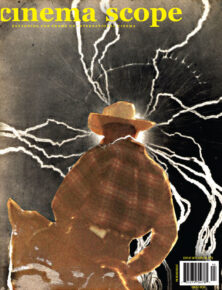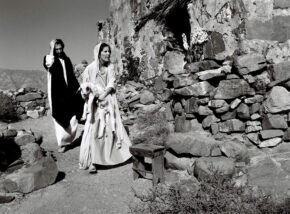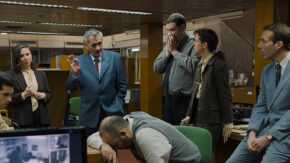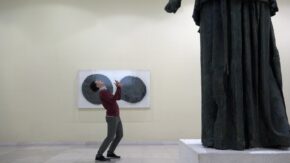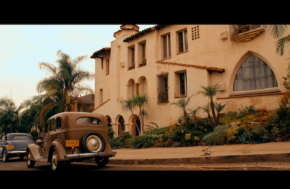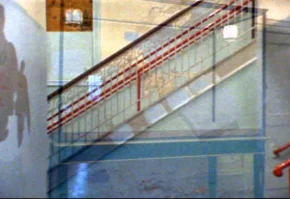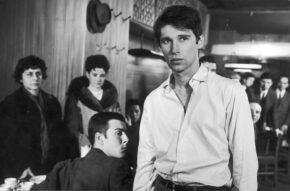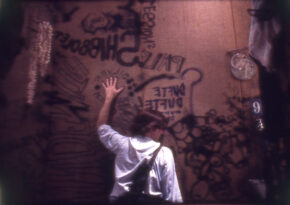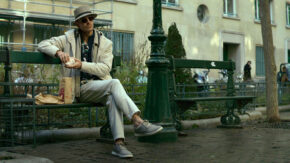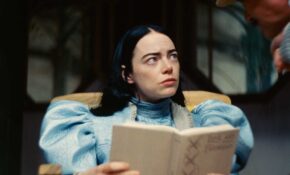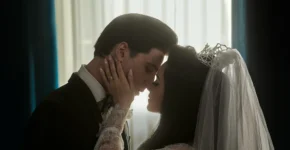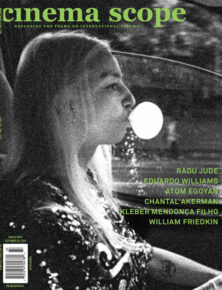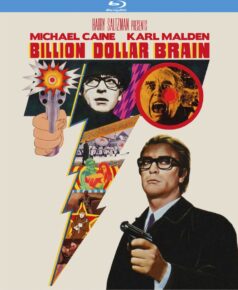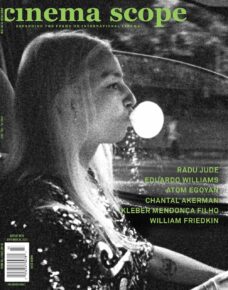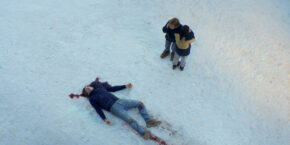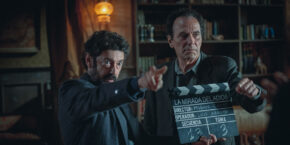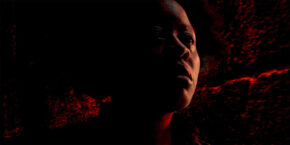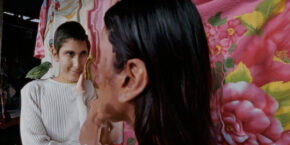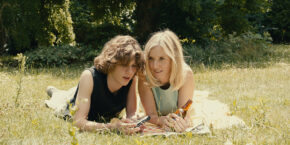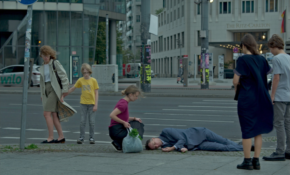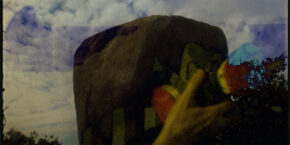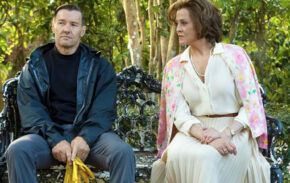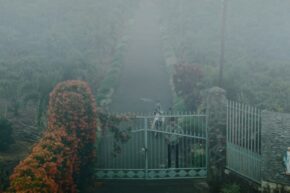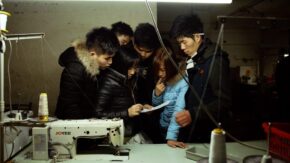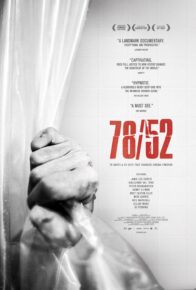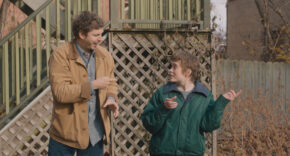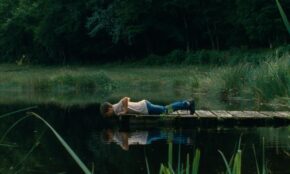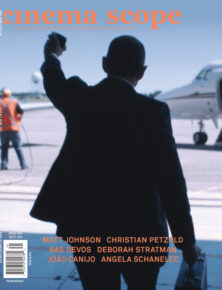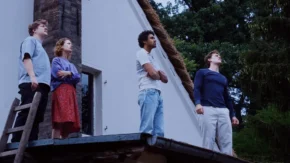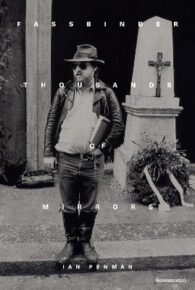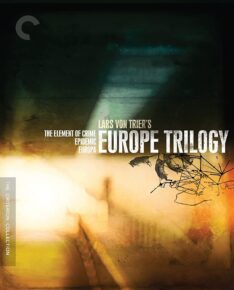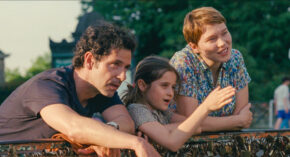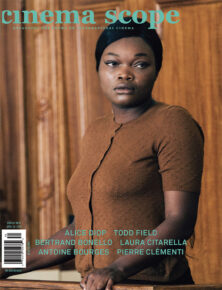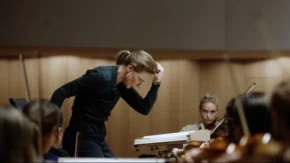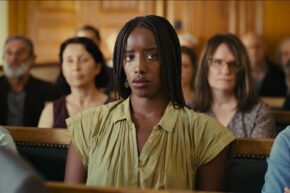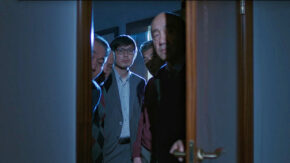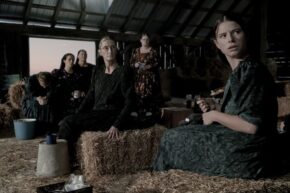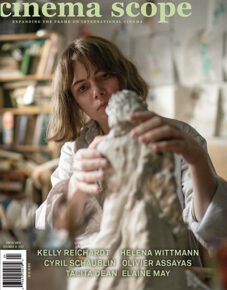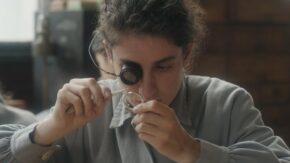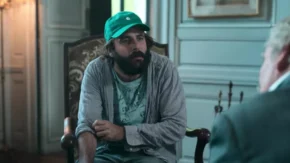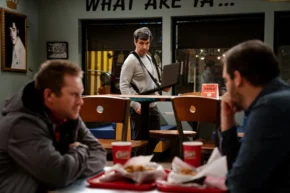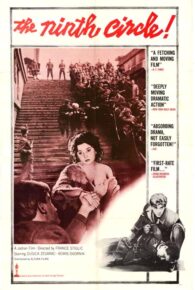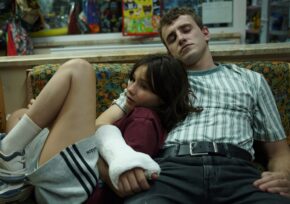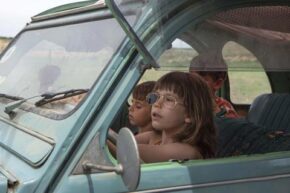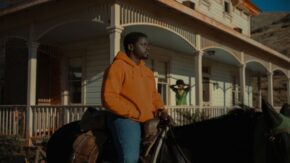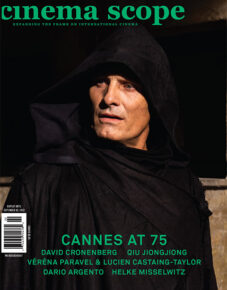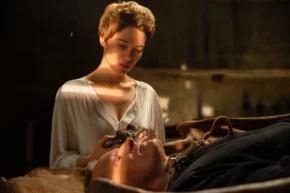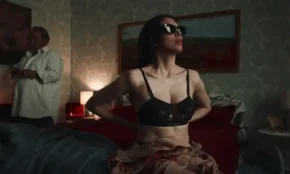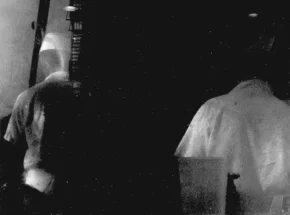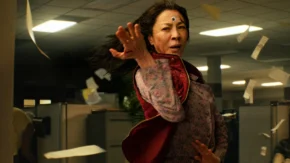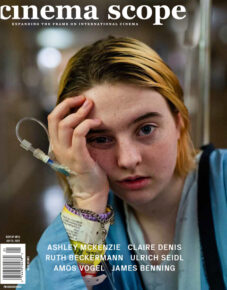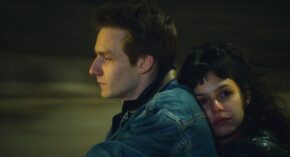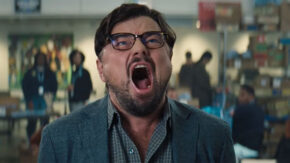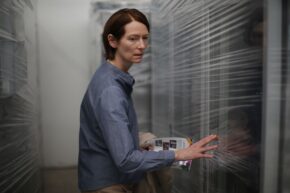From Cinema Scope Magazine
Cinema Scope 97 Table of Contents
By Ed | 01/24/2024 | CS97, From Cinema Scope Magazine, Table of Contents
Issue 97 contents with all the free articles linked. Includes Interviews, Features, Columns, Film/Art and more.
Read More → Issue 97 Editor’s Note
By Ed | 01/23/2024 | Columns, CS97, From Cinema Scope Magazine
I feel like I’ve explained enough in this space over the last year, so that announcing this is the final issue of Cinema Scope is in no way surprising. But let me reiterate that the time has long passed to envision a way of making this magazine sustainable financially without begging for money, or sustainable emotionally without driving me to a premature death...
Read More → Face the Music: Hamaguchi Ryusuke on “Evil Does Not Exist”
By Beatrice Loayza | 01/18/2024 | CS97, From Cinema Scope Magazine, Interviews
Hamaguchi Ryusuke’s sublime eco-fable, Evil Does Not Exist,begins and ends with the plangent score by Ishibashi Eiko, played fortissimo over an extended tracking shot facing skywards. A forest canopy, stark and stripped of its foliage by winter’s spell, appears like latticework through which daylight passes with an eerie vibrancy.
Read More → Your Own Hall of Fame: Alex Ross Perry on “Videoheaven” and “Pavements”
By Adam Nayman | 01/18/2024 | CS97, From Cinema Scope Magazine, Interviews
Two movies, both alike in indignity, in the ’90s, where we lay our scene. Because neither Videoheaven nor Pavements—both putatively non-fictional pop-culture essay films written and directed by Alex Ross Perry—have officially been released, programmed at a festival, or even announced via trailers or posters, it’s tricky to write about their intricacies, either as standalone works or in conversation with one another.
Read More → Objects of Desire: Rodrigo Moreno on “The Delinquents”
By Jordan Cronk | 01/18/2024 | CS97, From Cinema Scope Magazine, Interviews
Until recently a somewhat forgotten figure of the New Argentine Cinema, director Rodrigo Moreno has, with The Delinquents, asserted himself as perhaps that movement’s most underestimated talent.
Read More → From the Vision to the Nail in the Coffin, and the Resurrection: Dimitris Athiridis on “exergue – on documenta 14”
By Antoine Thirion | 01/18/2024 | CS97, From Cinema Scope Magazine, Interviews
As the supervisory board is currently tasked with restructuring the documenta selection process, the fear is that the freedom traditionally granted to the exhibition’s artistic direction will be drastically constrained in order to prevent any new national “scandal” the likes of which occurred around documenta 15 in 2022.
Read More → Last of the Independents: A Roundtable on “Charley Varrick” with Veronika Franz and Severin Fiala
By Christoph Huber | 01/18/2024 | CS97, Features, From Cinema Scope Magazine
Don Siegel’s superior crime picture Charley Varrick (1973) was supposed to be called Last of the Independents, but that title was nixed by Universal honcho Lew Wasserman. This probably gives even more credence to the subversive, stick-it-to-the-system notion nestled inside this tale of a crop-duster pilot who has resorted to small-scale robbery for a living because he can no longer compete against the capitalist monopoly in his legal job.
Read More → Deep Cuts: The First International Women’s Film Seminar
By Erika Balsom | 01/18/2024 | CS97, Features, From Cinema Scope Magazine
Lately it feels like everywhere I look obscure old films are being dusted off and presented to eager publics. Even a right-wing newspaper like London’s Telegraph had cause last November to speak of a “repertory boom” in the city where I live, deeming it “the year’s most unlikely media trend.” Their idea of what this looks like is a bit different than mine; not everyone is “suddenly” lining up to see Kind Hearts and Coronets (1949).
Read More → Open Source: Some Films by Ross Meckfessel
By Phil Coldiron | 01/18/2024 | CS97, Features, From Cinema Scope Magazine
It requires relatively little mental strain to imagine a world in which all that can be photographed has been; it requires, I think, considerably more to imagine one in which every possible photograph has been made. I find that both of these little thought experiments imply comic narratives—that is, to borrow a definition, ones which resolve in favour of their protagonists. And who might these protagonists be?
Read More → Film Tourists in Los Angeles
By Thom Andersen | 01/18/2024 | CS97, Features, From Cinema Scope Magazine
The directors who did the most to make Los Angeles a character in movies and then a subject were outsiders, like Wim Wenders and Billy Wilder, or tourists, like Antonioni. They weren’t interested in what made Los Angeles like a city; they were interested in what made Los Angeles unlike the cities they knew.
Read More → Out of Time: The Videos of Tulapop Saenjaroen
By Jesse Cumming | 01/18/2024 | Columns, CS97, Film - Art, From Cinema Scope Magazine
Few contemporary artists feel as attuned to late capitalism—and its insidious means of extracting both our time and resources—as Saenjaroen, whose works offer means of escape from or refutation of these forces.
Read More → The Sense of the Past: Terence Davies (1945–2023)
By Lawrence Garcia | 01/18/2024 | Columns, CS97, Deaths of Cinema, From Cinema Scope Magazine
To describe a film as being “about memory” is almost as cliché as to say that it is “about time.” Few subjects are thought to be more suited to a temporal medium defined by its mechanical recording apparatus. Yet the films of the late Terence Davies are to my mind the rare works actually deserving of such a description.
Read More → The World in Focus: Vincent Grenier (1948-2023)
By Michael Sicinski | 01/18/2024 | Columns, CS97, Deaths of Cinema, From Cinema Scope Magazine
While I would never compare the end of a magazine’s run with the end of a person’s life, there is a painful appropriateness to the fact that I am eulogizing my friend, filmmaker Vincent Grenier, in the final issue of Cinema Scope. Grenier’s work represents a tactile, phenomenological cinema that is not very popular with current tastemakers.
Read More → Dead Slow Ahead: On Joe Pera
By Kate Rennebohm | 01/18/2024 | Columns, CS97, From Cinema Scope Magazine, TV, TV or not TV
Enter Joe Pera, the comedian, actor, director, writer, and producer whose self-financed, self-produced, and self-released comedy special, Joe Pera: Slow & Steady, dropped on his YouTube channel in early October.
Read More → Global Discoveries on DVD: Now or Never
By Jonathan Rosenbaum | 01/18/2024 | Columns, CS97, DVD Reviews, From Cinema Scope Magazine
In what will likely be my last column in these pages, I’ve mainly tried to highlight releases and films that I’ve been meaning yet failing to watch for ages, following the assumption that it’s now or never. As most of my examples make clear, this avoidance has something to do with the unhealthiness or pessimism these films tend to leak from every pore.
Read More → Pale Shibboleth: Will Hindle’s “Chinese Firedrill”
By Chuck Stephens | 01/18/2024 | Columns, CS97, Exploded View, From Cinema Scope Magazine
The greatest film ever made that you’ve in all likelihood never seen, Will Hindle’s 1968 short masterwork Chinese Firedrill is a rarely screened, never-digitized chamber piece/psychodrama about memory, consciousness, involution, set design, comic/cosmic performance, and the inscrutable experiments and sublime experiences of photo-chemical cinema as it was just a little over half a century ago.
Read More → The Killer (David Fincher, US)
By Adam Piron | 01/17/2024 | CS97, Currency, From Cinema Scope Magazine
Clocking in at a clean 47 seconds, the title sequence in The Killer sets something like a metronome for David Fincher’s latest effort.
Read More → Killers of the Flower Moon (Martin Scorsese, US)
By Robert Koehler | 01/17/2024 | CS97, Currency, From Cinema Scope Magazine
The extreme thoroughness, subtlety, and thought invested in this project indicate that, as Scorsese moves into his Joe Biden years, he has evolved into a more nuanced, more complex film artist.
Read More → Menus-Plaisirs – Les Troisgros (Frederick Wiseman, US)
By Jay Kuehner | 01/17/2024 | CS97, Currency, From Cinema Scope Magazine
Given the stylistic consistency yet markedly disparate subject matter of his vast oeuvre to date, it is curious to consider what, if anything, constituted the precedent for his latest film, Menus-Plaisirs – Les Troisgros, a typically protracted look at an historically family-run restaurant near Lyon.
Read More → Poor Things (Yorgos Lanthimos, US/UK/Ireland)
By Deragh Campbell | 01/17/2024 | CS97, Currency, From Cinema Scope Magazine
...the premise of Poor Things—both in Alasdair Gray’s novel and the screenplay adapted by Tony McNamara—arrives as a potentially poignant advancement of Frankenstein’s Monster.
Read More → The Practice (Martín Rejtman, Argentina/Chile/Germany/Portugal)
By Haden Guest | 01/17/2024 | CS97, Currency, From Cinema Scope Magazine
The latest film by Martín Rejtman reaffirms his singular place in Argentine and world cinema as one of the rare non-mainstream auteurs working today, with brio and invention, in the realm of comedy.
Read More → Priscilla (Sofia Coppola, US)
By Ed | 01/17/2024 | CS97, Currency
The aesthetic appeal of Sofia Coppola’s work—baby pink and pastel colours, girly make-up and cute clothes, soft lighting and trippy music—belies a deeper understanding of the condition of teenage girls, her favourite subject. For the filmmaker, these formal elements aren’t just their surface, but their very substance—the Lisbon sisters’ pink bedrooms in The Virgin Suicides (1999) are part and parcel of their identities.
Read More → Cinema Scope Table of Contents 96
By cscope2 | 10/04/2023 | CS96, From Cinema Scope Magazine
Interviews Workingman’s Death: Radu Jude on Do Not Expect Too Much from the End of the World by Jordan Cronk Outside In: Eduardo Williams on The Human Surge 3 by Blake Williams The Phantom of the Opera: Atom Egoyan on Seven Veils by Adam Nayman Afterlife: Kleber Mendonça Filho on Pictures of Ghosts by Tom…
Read More → Global Discoveries on DVD: Reassessments
By Jonathan Rosenbaum | 10/01/2023 | Columns, CS96, DVD Reviews, From Cinema Scope Magazine
One advantage to growing older is having more opportunities to reassess and reflect. This isn’t only a matter of understanding and/or judging what one sees: it’s also a matter of evaluating why one has seen certain films and not seen certain others. Why, for instance, did I never get around to seeing Billion Dollar Brain (1967)—the only Harry Palmer spy thriller that ever piqued much of my interest, because it’s also the first theatrical feature directed by Ken Russell—until recently, on a multiple-format Kino Lorber Classic release?
Read More → Deaths of Cinema | Cork Soaker: William Friedkin, 1935–2023
By Chuck Stephens | 10/01/2023 | Columns, CS96, Deaths of Cinema, From Cinema Scope Magazine
His finest films—Cruising (1980), The French Connection (1971), The Exorcist (1973), To Live and Die in L.A.—are lotuses in the mung, gloriously efflorescent spores on the fertilizer of innumerable Z-grade genre formulas: the good bad cop, the haunted teenager, the thin line between law and fate.
Read More → Editor’s Note
By Mark Peranson | 09/13/2023 | Cinema Scope Online, From Cinema Scope Magazine, TIFF 2023
By Mark Peranson Published in Cinema Scope #96 (Fall 2023) First, another clarification for those who might have missed the nuance, or are not as inside baseball as I am: in the last issue the “open letter” from “Lisandro Alonso” to a certain French film festival director was obviously a ChatGPT joke—and as far as I am…
Read More → TIFF 2023 | Anatomy of a Fall (Justine Triet, France) — Special Presentations
By Aurelie Godet | 09/05/2023 | Cinema Scope Online, CS95, TIFF 2023
Have you ever sat in front of a large poster depicting the human body without its skin? One muscle gets entangled into another, the precision and complexity of their web apparent in the areas that are most crucial for movement, but with the face on top of this transparent carcass looking very much alive.
Read More → TIFF 2023 | Bouquets 31-40 (Rose Lowder, France) — Wavelengths
By Phil Coldiron | 09/05/2023 | Cinema Scope Online, Columns, CS96, From Cinema Scope Magazine, TIFF 2023
Across 50 years of avowedly experimental practice—“experimental” in the sense that failure is a welcome possibility—she has advanced and refined our understanding of the mechanics of film as much as anyone working today. Naturally, she remains relatively unknown in North America. Born and raised in the Andes, trained industrially on English editing tables, and residing in Provence since the mid-’70s, Lowder has sought, with singular focus, levels of expressive precision beyond the single frame.
Read More → TIFF 2023 | Chantal Akerman: Her First Look Behind the Camera (Chantal Akerman, Belgium) — Wavelengths
By Kate Rennebohm | 09/05/2023 | Cinema Scope Online, CS96, Features, From Cinema Scope Magazine, TIFF 2023
The Fondation Chantal Akerman and Cinematek, the Royal Film Archive of Belgium, have made available a remarkable find: four early shorts by the Belgian-born filmmaker, produced in 1967 when she was only 17 years old, which are now being exhibited under the program title Chantal Akerman: Her First Look Behind the Camera.
Read More → TIFF 2023 | Close Your Eyes (Víctor Erice, Spain) — Centrepiece
By Lawrence Garcia | 09/05/2023 | Cinema Scope Online, CS95, TIFF 2023
The Cannes Première of Close Your Eyes, Víctor Erice’s first feature since Dream of Light (1992) over three decades ago, was immediately followed by a minor controversy. Conspicuously absent from the film’s screening, Erice published an open letter at El País explaining his reasons for boycotting the festival, namely, a marked lack of communication—and an implicit lack of respect—from Thierry Frémaux and his programming team regarding his film’s inclusion in the Official Selection, not in Competition.
Read More → TIFF 2023 | Daughters of Fire (Pedro Costa, Portugal) — Wavelengths
By Giovanni Marchini Camia | 09/05/2023 | Cinema Scope Online, CS95, TIFF 2023
By Giovanni Marchini Camia Published in Cinema Scope #95 (Summer 2023) Among the pantheon of directors whom Pedro Costa habitually invokes when speaking about cinema (Godard, Straub, Ford), the youngest I’ve heard him include, and certainly the only one to have emerged in the 21st century, is Wang Bing. It therefore felt appropriate that Cannes would program…
Read More → TIFF 2023 | Do Not Expect Too Much from the End of the World (Radu Jude, Romania/Luxembourg/France/Croatia) — Wavelengths
By Jordan Cronk | 09/05/2023 | Cinema Scope Online, CS96, From Cinema Scope Magazine, Interviews, TIFF 2023
Where for many filmmakers the pandemic discouraged production or curbed creativity, it only seems to have inspired Radu Jude. Always impossible to peg, the prolific 46-year-old Romanian director has grown especially wily and provocative in recent years, embarking on a new phase in his career in which contemporary image culture and the sociopolitical absurdities of our time have become both subject of meticulous analysis and object of equally attentive ridicule.
Read More → TIFF 2023 | Fallen Leaves (Aki Kaurismäki, Finland/Germany) — Centrepiece
By Jordan Cronk | 09/05/2023 | Cinema Scope Online, CS95, TIFF 2023
At 81 minutes, Aki Kaurismäki’s Fallen Leaves was the shortest film in a bloated Cannes competition. It was also among the best, accomplishing more with less (and in less time) than any number of overwrought productions, a notion evidently shared by at least some members of Ruben Östlund’s jury, which awarded the film its namesake third runner-up prize, making this only the second honour Kaurismäki’s received from Cannes after winning the Grand Prix for The Man Without a Past in 2002.
Read More → TIFF 2023 | Here (Bas Devos, Belgium) — Wavelengths
By Jordan Cronk | 09/05/2023 | Cinema Scope Online, CS95, TIFF 2023
A film of uncommon warmth and delicacy, Bas Devos’ Here confirms a newfound sense of style and maturity in the Belgian filmmaker’s work that first appeared in the finely tuned nocturne Ghost Tropic (2019). Like that clearly pivotal project, Devos’ fourth feature—which won the top prize in the Encounters section at this year’s Berlinale—finds the 39-year-old director levelling up by scaling down.
Read More → TIFF 2023 | The Human Surge 3 (Eduardo Williams, Argentina/Portugal/Brazil/Netherlands/Taiwan/Hong Kong/Sri Lanka/Peru) — Wavelengths
By Blake Williams | 09/05/2023 | Cinema Scope Online, CS96, From Cinema Scope Magazine, TIFF 2023
Born on the extreme margins of an industry that is still only barely interested in product that isn’t either a sequel, remake, or reboot, Williams’ Surge saga is a franchise befitting the current climate of arthouse filmmaking, wherein conventions of continuity, plot mechanics, and psychological clarity are increasingly being challenged, if not outright dismissed. We have no idea where we’re going, but we seem to be getting there fast.
Read More → TIFF 2023 | Last Summer (Catherine Breillat, France) — Special Presentations
By Madeleine Wall | 09/05/2023 | Cinema Scope Online, CS96, Currency, From Cinema Scope Magazine, TIFF 2023
This year, the ever-industrious Saïd Ben Saïd has commissioned Catherine Breillat—for the 75-year-old director’s first film since 2013’s autobiographical Abus de faiblesse—not to specifically reimagine the story of Phaedra à la her other literary adaptations, but rather to remake May el-Toukhy’s 2019 Danish film Queen of Hearts, in which a successful lawyer has an affair with her adolescent stepson.
Read More → TIFF 2023 | Mademoiselle Kenopsia (Denis Côté, Canada) — Wavelengths
By Winnie Wang | 09/05/2023 | Cinema Scope Online, CS96, Currency, From Cinema Scope Magazine, TIFF 2023
Mademoiselle Kenopsia is centrally concerned with liminality—those spaces that oscillate between familiar and surreal, enduring in transitional stasis. The dimensions of transition can be temporal, as in sun-bleached plastic jungle gyms that evoke the passage from childhood, or spatial, as in secluded motels in the middle of road trip destinations.
Read More → TIFF 2023 | Music (Angela Schanelec, Germany/France/Serbia) — Wavelengths
By Phil Coldiron | 09/05/2023 | Cinema Scope Online, CS94, TIFF 2023
The compositional tropes of various high modernists, Bresson above all, loom large. Schanelec’s invention, instead, is tonal, a chording of irony and earnestness which allows her to handle the hottest emotions without ever being burned. Taken in other terms, this too looks more like refinement than invention: she is alone among her contemporaries in her capacity to reconcile the Apollonian and the Dionysian.
Read More → TIFF 2023 | Orlando, My Political Autobiography (Paul B. Preciado, France) — Wavelengths
By Holden Seidlitz | 09/05/2023 | Cinema Scope Online, CS96, Currency, From Cinema Scope Magazine, TIFF 2023
As the set is transformed in plain sight, the meta elements dissolving into a concentrated fantasy, the filmmaker’s own voice replaces the actor’s. Unseen, Paul B. Preciado asserts that, in Woolf but perhaps in general, “the first revolutionary metamorphosis is poetry,” which he defines as “the possibility of changing the names of all things.”
Read More → TIFF 2023 | Perfect Days (Wim Wenders, Japan/Germany) — Centrepiece
By Beatrice Loayza | 09/05/2023 | Cinema Scope Online, CS96, Currency, From Cinema Scope Magazine, TIFF 2023
Is Wim Wenders back? If he is, I’m not sure it’s such a good thing. Perfect Days, the tenth film by the German director to compete at Cannes, is a working-class yarn about the pleasantly banal routines of a toilet cleaner named Hirayama (Yakusho Koji), a beguiling loner with a beautiful soul who is harbouring a trauma that is never fully articulated by the film. Sound familiar?
Read More → TIFF 2023 | Pictures of Ghosts (Kleber Mendonça Filho, Brazil) — Wavelengths
By Tom Charity | 09/05/2023 | Cinema Scope Online, CS96, From Cinema Scope Magazine, Interviews, TIFF 2023
“All the cinemas went extinct,” observes a street vendor who used to sell movie posters and lobby cards behind the film distribution centre in downtown Recife, Brazil, before the bottom dropped out of the market. The kicker: this interview was recorded 30 years ago.
Read More → TIFF 2023 | Seven Veils (Atom Egoyan, Canada) — Special Presentations
By Adam Nayman | 09/05/2023 | Cinema Scope Online, CS96, From Cinema Scope Magazine, Interviews, TIFF 2023
“Nothing more Satanic or artistic has been seen on the German stage,” wrote one critic of the premiere of Salome in Ganz, Austria in 1891. In The Rest is Noise, Alex Ross describes the unveiling of Richard Strauss’ opera—which climaxed, like Oscar Wilde’s source play and the New Testament chapter before it, with the bloody decapitation of John the Baptist—as a primal scene for 20th-century music: a Grand Guignol collision of ripe classicism and atonal modernity that left geniuses and punters alike stupefied.
Read More → TIFF 2023 | We Don’t Talk Like We Used To (Joshua Gen Solondz, US) — Wavelengths
By Michael Sicinski | 09/05/2023 | Cinema Scope Online, CS96, From Cinema Scope Magazine, TIFF 2023
As one watches the films in question—in particular Luna e Santur (2016), (tourism studies) (2019), and his newest film We Don’t Talk Like We Used To—one of the impressions one draws is that Solondz is also turning the quotidian home space into something else. We might call it “savage domesticity.”
Read More → Cinema Scope Issue 95 | Table of Contents
By cscope2 | 06/20/2023 | CS95, From Cinema Scope Magazine, Table of Contents
Interviews and Features Back to Zero: The Experimental Cinema of Jean Eustache by Michael Sicinski Life Belongs to Us: The Eternal Return of Jacques Becker and Claude Sautet by Christoph Huber Master at Work: Paul Schrader on Master Gardener by Will Sloan Pictures of Flowers: On Recent Small-Gauge Filmmaking in and Around Spain by Phil…
Read More → Back to Zero: The Experimental Cinema of Jean Eustache
By Michael Sicinski | 06/20/2023 | CS95, Features, From Cinema Scope Magazine
When a filmmaker’s body of work starts doing the rounds of the cinematheques and museums, it provides an opportunity for re-evaluation or discovery. Even for those of us who are familiar with the cinema of Jean Eustache, the current retrospective, which screens this summer at TIFF Cinematheque and other North American venues, is a substantial reminder that there’s a lot we still don’t know about this singular director.
Read More → Master at Work: Paul Schrader on “Master Gardener”
By Will Sloan | 06/20/2023 | CS95, Features, From Cinema Scope Magazine, Interviews
Paul Schrader’s career has been eclectic enough to encompass biopics of Mishima Yukio, Bob Crane, and Patricia Hearst; adaptations of books by Ian McEwan, Russell Banks, and Nikos Kazantzakis; genre films that meet the expectations of the horror, thriller, and romance forms; and star vehicles tailored to bring out the best in icons as disparate at Richard Pryor, Richard Gere, George C. Scott, and Lindsay Lohan.
Read More → The Dream’s Dream: Lisandro Alonso on “Eureka”
By Dennis Lim | 06/20/2023 | CS95, Festivals, From Cinema Scope Magazine, Interviews, Spotlight
I write this open letter with profound frustration and disappointment over the programming decisions made for this year’s Cannes. As a filmmaker who has poured my heart and soul into creating thought-provoking and artistically daring works, I cannot help but express my vehement opposition to the relegation of my film, Eureka to the Cannes Première section.
Read More → Close Your Eyes (Víctor Erice, Spain)
By Lawrence Garcia | 06/20/2023 | CS95, Festivals, From Cinema Scope Magazine
The Cannes Première of Close Your Eyes, Víctor Erice’s first feature since Dream of Light (1992) over three decades ago, was immediately followed by a minor controversy. Conspicuously absent from the film’s screening, Erice published an open letter at El País explaining his reasons for boycotting the festival, namely, a marked lack of communication—and an implicit lack of respect—from Thierry Frémaux and his programming team regarding his film’s inclusion in the Official Selection, not in Competition.
Read More → Anatomie d’un chute (Justine Triet, France)
By Aurelie Godet | 06/20/2023 | CS95, Festivals, From Cinema Scope Magazine, Spotlight
Anatomie d’un chute is her fourth feature, and, like all of her work, it shows a keen interest in the chaos of interwoven movements both toward and away from others that humans somehow revel in testing and rearranging, as if unable to figure out the big picture—and in spite of the confusion they keep inflicting on themselves. Never before, though, has Triet displayed such analytical rigour in laying out the ramifications of her premise and reassembling them in a harmonious exposé.
Read More → Inside the Yellow Cocoon Shell (Pham Thien An, Vietnam/Singapore/France/Spain)
By Robert Koehler | 06/20/2023 | CS95, Festivals, From Cinema Scope Magazine, Spotlight
Cinema has always had to defend itself against the pressures of business and capital, and yet, because filmmaking remains expensive (contrary to the false digital fantasies of “cheap” cameras), it is business and capital that continues to keep cinema going. This contradiction of conditions deepens when the filmmaking takes place in a communist-governed nation like Vietnam, where capital operates (albeit sometimes uneasily) within a state-run system.
Read More → The Girl and Her Trust: Sean Price Williams on “The Sweet East”
By Adam Nayman | 06/20/2023 | CS95, Festivals, From Cinema Scope Magazine, Interviews, Spotlight
For some critics and film-cultural commentators, The Sweet East arrives to the Quinzaine smelling of something pungent: its credits list as an executive producer one Jimmy Kaltreider, as per Politico a top aide to Peter Thiel, who himself once upon a time helped another gifted, up-and-coming director make his own politically ambivalent feature debut (Thank You For Nothing, Peter). As Williams says below, treating The Sweet East like a kind of ground zero for right-wing patronage in the history of American cinema—independent or otherwise—is selective and ahistorical to say the least, but the strident liberal-baiting on display still warrants comment.
Read More → Cinema Scope 95 Editor’s Note
By Mark Peranson | 06/20/2023 | Columns, CS95, From Cinema Scope Magazine
The Cannes audience has succumbed to the pressure of conformity, afraid to be the one dissenting voice amidst a sea of applause. It’s disheartening to witness the lack of discernment, as film after film is met with a standing ovation, blurring the line between true excellence and mediocre mediocrity.
Read More → Film/Art | Another Space of Reference: The Performances and Videos of Ulysses Jenkins
By Jesse Cumming | 06/20/2023 | Columns, CS95, Film - Art, From Cinema Scope Magazine
“The content of my videotape involves documentary subject matter. The visuals combined with music are the attempt to create the mood of the community…in certain sequences light reflections create forms in space.”
—Ulysses Jenkins, “Comment on Video Tape” (1977)
Read More → Global Discoveries on DVD: Criticism vs. Fan Fodder
By Jonathan Rosenbaum | 06/20/2023 | Columns, CS95, DVD Reviews, From Cinema Scope Magazine
As a lifelong film buff who became a professional film critic in my late twenties, I’ve spent much of my life ever since trying to reconcile these two distinct and, in some respects, conflicting identities. Many of my colleagues seem to regard criticism and fandom as reverse sides of the same commercial coin—compatible and mutually reinforcing facets of the same impulses, sometimes blissfully fusing into a sincere form of advertising.
Read More → The Adults (Dustin Guy Defa, US)
By Angelo Muredda | 06/20/2023 | CS95, Currency, From Cinema Scope Magazine
Though The Adults is at times diminished more than it’s enriched by its echoes of other texts about wayward children skulking back to their childhood home, as well as family narratives about faded talents with arrested development (including the same-named series wherein a teenaged Cera reads as precocious as he is dissipated here), the film has enough of Defa’s own peculiar, spiky tenderness to set it apart.
Read More → Astrakan (David Depesseville, France)
By Jay Kuehner | 06/20/2023 | CS95, Currency, From Cinema Scope Magazine
By Jay Kuehner The reassurance implicit in the coming-of-age story is that of things foregone, universal, known; the particularities of the passage are shorn of their severity and exigence. The subject is supposed, invariably, to have arrived, their journey ultimately delineated in retrospect. The entropy of heightened subjectivity is at last externalized and made legible.…
Read More → In the Bedroom: Bertrand Bonello on Coma
By Adam Nayman | 06/18/2023 | Cinema Scope Online, CS93
By Adam Nayman Officially, Bertrand Bonello’s last three features comprise a triptych about youth, but there’s also a shadow interpretation waiting to be made of Nocturama (2016), Zombi Child (2019), and Coma as an extended, eccentric treatise on horror-movie history and aesthetics—call it a self-reflexive Trilogy of Terror. Whatever its debts to Le diable probablement…
Read More → The Sea Inside: Helena Wittmann on Human Flowers of Flesh
By Jordan Cronk | 04/19/2023 | Cinema Scope Online, CS92
By Jordan Cronk Among a new generation of German filmmakers, Hamburg’s Helena Wittmann is uniquely elemental, even primal, in her concerns. For over a decade, the 39-year-old artist has been exploring the outer reaches of cinematic storytelling through the medium’s singular ability to transform not only space and time, but also the spectator’s relationship with…
Read More → Cinema Scope Issue 94 | Table of Contents
By cscope2 | 03/24/2023 | CS94, From Cinema Scope Magazine, Table of Contents
Matt Johnson and Matt Miller on BlackBerry, Sentimental Education: Christian Petzold on Afire, The Nameless World: Bas Devos on Here - and more
Read More → The Battle of Waterloo: Matt Johnson and Matt Miller on <em>BlackBerry</em>
By Adam Nayman | 03/24/2023 | CS94, From Cinema Scope Magazine, Interviews
Howerton’s 40-proof, rageaholic performance skirts caricature but comes out the other end as a psychologically deft tour de force. This loosely fictionalized version of Balsillie, whose seething, pent-up contempt for partners and competitors alike emanates from some darker place (maybe even subconscious solidarity with his geeky new underlings) is a memorable and malevolent creation—the closest thing Canadian entertainment has had to a Gordon Gekko since the glory days of Traders.
Read More → Sentimental Education: Christian Petzold on <em>Afire</em>
By Darren Hughes | 03/24/2023 | CS94, From Cinema Scope Magazine, Interviews
Christian Petzold becomes bored with his own voice during press junkets. “I want to tell new stories,” he confesses with a smile. “For example, I said in one interview that the next movie is about homosexual love or something like that. I’m not very professional sometimes.”
Read More → After Tragedy: On Angela Schanelec’s <em>Music</em>
By Phil Coldiron | 03/24/2023 | CS94, Features, From Cinema Scope Magazine
The film’s promotional material refers to it as “freely inspired by the myth of Oedipus,” and so it is. Compared with the incidental narrative constructions of the prior two films, this ordering use of myth ensures that however opaque an event may seem in the moment, its place in the logic of the story is equally present, rather than graspable only upon reflection.
Read More → Aether/Ore: Post-Humanism in Deborah Stratman’s <em>Last Things</em>
By Michael Sicinski | 03/24/2023 | CS94, Features, From Cinema Scope Magazine
Last Things, the latest work from Deborah Stratman, participates in a small but growing trend in experimental filmmaking. Following certain tendencies in contemporary philosophy, Last Things attempts to communicate a radically non-anthropocentric view of existence.
Read More → Cinema Scope Magazine: Issue 94 Editor’s Note
By Mark Peranson | 03/24/2023 | Columns, CS94
To begin with, an update on the current situation of things, which hasn’t changed substantially since the last editor’s note. But as I write this in between minor mental breakdowns, you’ve caught me in a calmer state of mind, which should not be mistaken for a lack of desperation.
Read More → Festivals | Berlin: Claire Simon’s Notre corps
By Beatrice Loayza | 03/24/2023 | CS94, Festivals, From Cinema Scope Magazine
Claire Simon’s Notre corps—which captures the visitations and procedures in the gynecological ward of Paris’s Tenon hospital, a public institution located a few blocks from Père Lachaise—understands this compromise, but offers a rebuttal as well: it honours the body’s possibilities and delicate particularities by expanding that gaze to encompass the lives beyond the bodies, the unique frictions engendered by supposedly objective methods.
Read More → The Self in Shards: Ian Penman’s <em>Fassbinder: Thousands of Mirrors</em>
By Erika Balsom | 03/24/2023 | Books, CS94, From Cinema Scope Magazine
“The night he died I was in a north London nightclub, where I took heroin for the first time. I returned to my south London flat the next morning, threw up, and went straight in to work, where someone immediately told me about his death.” This fragment, the 421st of the 450 that comprise Ian Penman’s engaging new book Fassbinder: Thousands of Mirrors, strikes me as something much more than a “where were you when…” sort of anecdote.
Read More → Global Discoveries on DVD: Digital Releases I Don’t Want & a Few Others That I Do
By Jonathan Rosenbaum | 03/24/2023 | CS94, DVD Reviews, From Cinema Scope Magazine
Who could it be at Vinegar Syndrome Films in the US and/or Powerhouse Films in the UK who decided I was an aficionado of Mexican and/or Canadian wrestling? I haven’t been able to discover if Vinegar Syndrome and Powerhouse are distantly or closely related to one another—or if, on the contrary, separate publicists at each company arrived independently at the notion that I was an actual or potential wrestling buff.
Read More → Nothing and Everything: Black Zero Begins
By Joshua Minsoo Kim | 03/24/2023 | Canadiana, CS94, From Cinema Scope Magazine
The three inaugural releases from Black Zero, a new archival label dedicated to Canadian experimental cinema, are unified by their mystique and uncompromising, adventurous spirit.
Read More → <em>Un beau matin</em> (Mia Hansen-Løve, France/UK/Germany)
By Holden Seidlitz | 03/24/2023 | CS94, Currency, From Cinema Scope Magazine
...there are instances where autofiction permits storytellers to forget the structural demands of narrative, a fate which befalls the French filmmaker Mia Hansen-Løve in her latest feature, Un beau matin,whose pat ending doesn’t suit her characters so much as her own memory.
Read More → <em>Infinity Pool</em> (Brandon Cronenberg, Canada/Croatia/Hungary)
By Saffron Maeve | 03/24/2023 | CS94, Currency, From Cinema Scope Magazine
There are few sights more imprinting than Alexander Skarsgård, nearly nude and with a silicone cap and cheek retractor, pouring himself feet-first into polychromatic sludge. He’s almost unrecognizable in his starkness, eyeballs positively juddering with fear as the room fills with liquid, all so he can elude capital punishment. As with fidelity and morals, the legalities within Brandon Cronenberg’s Infinity Pool are elastic.
Read More → Enys Men (Mark Jenkin, UK)
By Angelo Muredda | 03/20/2023 | Cinema Scope Online, CS92
By Angelo Muredda A woman’s observation that lichen has started to grow on a flower she’s been studying for weeks counts as bold narrative progress in Mark Jenkin’s decidedly low-stakes folk-horror curio, Enys Men. Shot in the same striking, hand-processed 16mm stock and set in the same seaside milieu as the director’s lauded feature debut…
Read More → The Plains (David Easteal, Australia)
By Chloe Lizotte | 02/20/2023 | Cinema Scope Online, CS91
By Chloe Lizotte In his first feature, The Plains, David Easteal nestles his camera into the backseat of a Hyundai sedan belonging to Andrew (Andrew Rakowski), a lawyer in his late fifties. As he commutes home from a sleepy office park on the outskirts of Melbourne, he whizzes by suburban strip malls and inches through traffic jams, then merges onto the freeway alongside…
Read More → Cinema Scope Issue 93 | Table of Contents
By cscope2 | 01/10/2023 | CS93, From Cinema Scope Magazine, Table of Contents
Alice Diop on St Omer, Tod Field on Tár, Antoine Bourges on Concrete Valley and more features, reviews and free articles. Subscribe or buy an issue and help us reach 100.
Read More → The Pyramid of Power: Todd Field on “Tár”
By Robert Koehler | 01/10/2023 | CS93, From Cinema Scope Magazine, Interviews
After a protracted absence, Todd Field is back, and with a film that more than compensates for the wait. However, Tár shouldn’t be gauged in terms of some value system based on the number of years that Field has gone without a new movie (16, following his second feature, Little Children [2006]), any more than the gap of years between new works by Field’s mentor, Stanley Kubrick, should have been a measure for his movies.
Read More → Entre nous: Alice Diop on “Saint Omer”
By Beatrice Loayza | 01/10/2023 | CS93, From Cinema Scope Magazine, Interviews
In 2016, Alice Diop set out to the northern French town of Saint Omer to attend the trial of Fabienne Kabou, a Senegalese woman accused of killing her baby girl. The French media was enraptured by the crime; the details made for a textbook fait divers, a sensational news item spun by journalists desperate to satiate their scandal-starved readers.
Read More → Alter Egos: On “A Woman Escapes”
By Josh Cabrita | 01/10/2023 | CS93, From Cinema Scope Magazine, Spotlight
The primary pleasure offered by A Woman Escapes is seeing how these exchanges push each co-director (or, rather, the style we would associate with them) out of their comfort zone, compelling them to respond, adapt, and eventually evolve in ways that would have been difficult to imagine without the benefit of this experiment.
Read More → The Adventures of Gigi the Law (Alessandro Comodin, Italy/France/Belgium)
By Jay Kuehner | 01/10/2023 | CS93, From Cinema Scope Magazine, Spotlight
Not since Corneliu Porumboiu’s Police, Adjective (2009) has a cop movie been so sublimely uneventful as Alessandro Comodin’s The Adventures of Gigi the Law, a slack portrait of an affable officer in Friuli’s polizia locale. Pier Luigi Mecchia (a.k.a Gigi)—the director’s real-life uncle, effectively playing himself—performs his perfunctory patrol in the town of San Michele al Tagliamento, but Comodin’s film is more modern pastoral than police procedural.
Read More → The Maiden (Graham Foy, Canada)
By Saffron Maeve | 01/10/2023 | Canadiana, CS93, From Cinema Scope Magazine, Spotlight
we don’t see anyone die in The Maiden, a ghost story wherein the dead are less gone than misplaced (even a lifeless cat appears to survive the cosmic wash cycle). While one may occasionally take issue with the film’s determinedly elliptical approach to its central subject, Foy always remains both formally and narratively fastened to the amorphous, ugly, and insoluble reality of grief.
Read More → Poet (Darezhan Omirbaev, Kazakhstan)
By Giovanni Marchini Camia | 01/10/2023 | CS93, From Cinema Scope Magazine, Spotlight
Poet underlines the permanence of this condition by alternating between two narrative timelines: one set in the present, and the other stretching from 1846 to 1974. Consistent with Omirbaev’s abiding interest in representing his characters’ subconscious, the latter timeline plays out in Didar’s imagination.
Read More → Cinema Scope Magazine: Issue 93 Editor’s Note
By Mark Peranson | 01/10/2023 | Columns, CS93, From Cinema Scope Magazine
I had hoped that we would reach the age of 100, but 93 is pretty damned old. We still might get there. Here are the best films of all time.
Read More → TV or Not TV | Lars’ Anatomy: “The Kingdom” Returns
By Michael Sicinski | 01/10/2023 | Columns, CS93, From Cinema Scope Magazine, TV or not TV
This is von Trier using the language of postmodernism, appropriation, and pastiche to remind us that The Kingdom is essentially a put-on. It would be impossible for any halfway attentive viewer to miss Exodus’ citations of Lynch, Maddin, Tarkovsky, Ghostbusters
Read More → All the Beauty and the Bloodshed (Laura Poitras, US)
By Haden Guest | 01/10/2023 | CS93, Currency, From Cinema Scope Magazine
the third in a series of portrait films by Laura Poitras focused on prominent activists pitched in quixotic struggle against dark forces undergirding the US as a global capitalist superpower. Unlike the divisive figures engaged by her previous features—Edward Snowden and Julian Assange—Poitras’ latest subject, Nan Goldin, could never be dismissed as a self-serving gadfly.
Read More → Women Talking (Sarah Polley, US)
By Winnie Wang | 01/10/2023 | CS93, Currency, From Cinema Scope Magazine
Sarah Polley’s adaptation of Miriam Toews’ 2018 novel Women Talking is set in a remote Mennonite community that exists out of time and under its own jurisdiction, with its own rules and superstitions. For years, the nocturnal disturbances that left local girls and women bruised and bleeding were thought to be a result of divine retribution, demons, or “female imagination”; it was later discovered that their collective nightmare was, in fact, repeated sexual assaults carried out by men armed with animal tranquillizers, many of whom were brothers, cousins, or uncles of the victims.
Read More → Matters of Fact: Antoine Bourges on “Concrete Valley”
By Lawrence Garcia | 01/10/2023 | CS93, From Cinema Scope Magazine, Interviews
For its casting of non-professional actors within a mostly scripted narrative, Antoine Bourges’ latest feature, Concrete Valley, has already been called a docu-fiction “hybrid.” Set in the East Toronto neighbourhood of Thorncliffe Park, an initial an initial landing spot for new Canadian immigrants, the film centres on Rashid (Hussam Douhna), a former physician from Syria, who settles there with his wife, Farah (Amani Ibrahim), and their young son Ammar (Abdullah Nadaf). Apart from Ibrahim, who in the film plays a former actor, everyone who appears in Concrete Valley is an amateur performer.
Read More → Against Interest: Pierre Clémenti, Filmmaker
By Phil Coldiron | 01/10/2023 | CS93, Features, From Cinema Scope Magazine
We are moved by films because, briefly, deeply, they convince us that the past isn’t irretrievable, that life isn’t forever slipping away. But in his usual manner, Clémenti immediately complicates this, narrowing the perspective to an actor’s: “And at the very moment you’re playing the part, you become the person who will one day look back at yourself.”
Read More → Cinema Scope Issue 92 | Table of Contents
By Cinema Scope | 09/27/2022 | CS92, From Cinema Scope Magazine, Table of Contents
Interviews with Kelly Reichardt, Cyril Schäublin, Olivier Assayas. Features, Columns and more.
Read More → Take These Broken Wings: Kelly Reichardt on “Showing Up”
By Adam Nayman | 09/27/2022 | CS92, From Cinema Scope Magazine, Interviews
“We thought we were writing a film that was partly comedic in tone. I can find a lot to laugh at with liberal arts while still believing liberal arts are super-important. Some of the situations in Showing Up are comical, but the people aren’t stereotypes—we really tried to stay away from that.”
Read More → Timely Circumstances: Cyril Schäublin on “Unrest”
By Jay Kuehner | 09/27/2022 | CS92, From Cinema Scope Magazine, Interviews
I think this is the critical question now: how do we chart our history? How do we reimagine a truer solidarity? Maybe the film allows us to imagine other possibilities.
Read More → What Is Cinema? Olivier Assayas on “Irma Vep”
By Beatrice Loayza | 09/26/2022 | CS92, From Cinema Scope Magazine, Interviews
With both versions of Irma Vep,Assayas looks tothe ruptures between the production processes and moviemaking cultures of then and now to create comedy and tragedy about what it means to want to continue the fight, the folly, that is making movies, continuously posing that vital and unanswerable question—“What is cinema?”—in order to recalibrate our perception of what it could be and what it’s not amid such endless reinvention and recontextualization.
Read More → Telling the Truth Can Be Dangerous Business: The Overdue Enshrinement of Elaine May
By Christoph Huber | 09/26/2022 | CS92, Features, From Cinema Scope Magazine, TV
It’s not as if Elaine May wasn’t a beloved figure in American popular culture for most of her life. Her successful pairing with Mike Nichols as an innovative improv comedy team in the late ’50s may have been short-lived—the duo broke up at the height of their success in 1961—but is regularly cited as one of the most influential and well-remembered comedy acts the US has ever known.
Read More → Can the Centre Hold?: The Films of Adirley Queirós
By James Lattimer | 09/26/2022 | CS92, Features, From Cinema Scope Magazine
The periphery is always the centre in the films of Adirley Queirós, whether in terms of the people and places at the focus of his attention or the off-centre stylistic means he employs to explore their tribulations, and, by extension, those of Brazil.
Read More → Cinema Scope Magazine 92: Editor’s Note
By Mark Peranson | 09/26/2022 | Columns, CS92, From Cinema Scope Magazine
we shouldn’t forget the reasons why we all got into this job in the first place, which is the promotion of film as an art form. The impact that festivals have on general art-house distribution should not be overlooked; of course, as touched on above, sometimes it’s the distributor who decides to skip festival screenings for certain films, because everyone has their reasons.
Read More → TV or Not TV | Finding Fielder: “The Rehearsal”
By Kate Rennebohm | 09/26/2022 | Columns, CS92, From Cinema Scope Magazine, TV, TV or not TV
Nathan Fielder’s newest television show, The Rehearsal—which was renewed for a second season at the recent close of its dizzying six-episode run on HBO—is a true comedy, in the sense that it’s really a tragedy. A deeply funny show wrapped around a startling core of sadness, The Rehearsal sets its sights on the tangled notion that the more we instrumentalize or attempt to control the world, the more the reality of that world and those in it seems to escape us.
Read More → Global Discoveries on DVD: Bologna’s Bounty
By Jonathan Rosenbaum | 09/26/2022 | Columns, CS92, DVD Reviews, From Cinema Scope Magazine
There appears to be a consensus that this year’s Il Cinema Ritrovato in Bologna was exceptionally rich—so much so that I concluded that my next column in these pages could be devoted to some of its riches, most of which are already available on DVD or Blu-ray in one form or another.
Read More → Film/Art | Evidence Visible from a Distance: Tacita Dean on Fata Morgana
By Antoine Thirion | 09/26/2022 | Books, Columns, CS92, Film - Art, Interviews
In The Green Ray (2001), British artist Tacita Dean famously managed to capture on 16mm film the fleeting light that the sun leaves behind right at the moment when it disappears from the horizon. And, because a digital camera used by others at the same time, on the same beach, was unable to capture it, her film proves two things: one, that the green ray, despite being missed by almost all who try and see it, is not a legend; two, that only film can capture it. But the evidence is elusive, as Éric Rohmer found out while shooting Le rayon vert (1986), eventual
Read More → Aftersun (Charlotte Wells, UK/US)
By Jason Anderson | 09/26/2022 | CS92, Currency, From Cinema Scope Magazine
The image of Paul Mescal lost and losing himself in a crowded, strobe-lit dancefloor is the most haunting leitmotif in Charlotte Wells’ debut feature Aftersun, a film that would be acutely musical in feel and structure even if it weren’t powered by such a carefully curated selection of underappreciated late-’90s UK chart faves (All Saints and Chumbawamba included). As glimpsed in the flickering light, his face expresses both the loved-up chemical bliss expected of the era’s aging ravers and a more disquieting sense of vacancy; it’s as if he’s not all there. And while that phrase risks being more suggestive of some garden-variety weekender blasted
Read More → Alcarràs (Carla Simón, Spain/Italy)
By Saffron Maeve | 09/26/2022 | CS92, Currency, From Cinema Scope Magazine
By Saffron Maeve A pejorative superficially on par with its sister terms Big Pharma and Big Tech, which imply a gadgety reshaping of the natural world, Big Ag looms heavy over the sunny fields of Carla Simón’s acclaimed Alcarràs, which was awarded the Golden Bear at this year’s Berlinale and exceeded all box-office expectations upon…
Read More → Nope (Jordan Peele, US)
By Robert Koehler | 09/26/2022 | CS92, Currency, From Cinema Scope Magazine
Whatever else you may have heard about Nope, otherwise known as “Not of Planet Earth,” know this: Jordan Peele’s third and most radical movie is his subversive inquiry into Hollywood. On the surface, such a stance is old news. At least as early as Nathaniel West’s The Day of the Locust, artists who have experienced the Hollywood moviemaking business firsthand have exacted some form of literary or cinematic revenge at the beast that has fed them. The irony is that it can sometimes seem that it’s some of the most successful in the Hollywood galaxy who engage in this project, whether it be Vincente Minnelli with The Bad and the Beautiful (1952), Paul Mazursky with Alex in Wonderland (1970), or Robert Altman with The Player (1992).
Read More → Cinema Scope Issue 91 | Table of Contents
By Cinema Scope | 06/21/2022 | CS91, From Cinema Scope Magazine, Table of Contents
Interviews Wippet Good: A Conversation Between Don McKellar and David Cronenberg on Crimes of the Future by Lawrence Garcia, Don McKellar Send in the Clowns: Qiu Jiongjiong on A New Old Play by Shelly Kraicer Gross Anatomy: Véréna Paravel & Lucien Castaing-Taylor on De Humani Corporis Fabrica by Blake Williams Features Endless Night: Dark Glasses…
Read More → Wippet Good: A Conversation Between Don McKellar and David Cronenberg on “Crimes of the Future”
By Lawrence Garcia | 06/21/2022 | CS91, From Cinema Scope Magazine, Interviews
David Cronenberg’s Crimes of the Future may be marked as a “return” for the 79-year-old director in a number of respects. His first feature in eight years, it is also his first to be based on an original script since eXistenZ. In addition, Crimes sees Cronenberg revisiting, after a fashion, his 1970 film of the same name, from which he’s taken the central premise of genetic mutations in humans which have resulted in the spontaneous growth of new organs.
Read More → Send in the Clowns: Qiu Jiongjiong on “A New Old Play”
By Shelly Kraicer | 06/21/2022 | CS91, From Cinema Scope Magazine, Interviews
The brightest light in the Chinese independent cinema world at this moment is Beijing-based filmmaker and artist Qiu Jiongjiong. In an atmosphere in China of increasing surveillance and control of non-official, unauthorized artistic activity in China, Qiu, now 44, stands out as an artist with a powerful, complex, engaging vision who has found a way to continue to work without compromise. His new film, A New Old Play, premiered at the 2021 Locarno Film Festival and is now having a series of screenings in North America, after following its pickup by Icarus Films via their dGenerate Films Collection
Read More → Gross Anatomy: Véréna Paravel & Lucien Castaing-Taylor on “De Humani Corporis Fabrica”
By Blake Williams | 06/21/2022 | CS91, From Cinema Scope Magazine, Interviews
...watching this movie frequently hurts like hell, and not just physically. With a camera that furiously navigates its subjects’ myriad intestinal tracts, cranial cavities, and other, mercifully unidentifiable visceral miscellany, De Humani Corporis Fabrica is very probably the most aesthetically interoceptive movie ever made for theatrical exhibition.
Read More → Endless Night: “Dark Glasses” and the Remnants of Dario Argento’s Mad Poetry of Terror
By Christoph Huber | 06/21/2022 | CS91, Features, From Cinema Scope Magazine
Everybody is staring into the sky, wearing special glasses or holding up black strips to protect their eyes. She stops at a park, joining a small group of people, putting on her sunglasses. Dogs bark as the light dims—they are awaiting a solar eclipse. “Not just dogs, every animal is afraid,” a man explains to his kid. “Even our ancestors, a long time ago, feared the eclipse.” His wife adds, “They thought the disappearance of the sun meant the end of the world.”
Read More → The Natives Are Restless: Cannes’ Diamond Jubilee and Albert Serra’s “Pacifiction”
By Mark Peranson | 06/21/2022 | CS91, Festivals, From Cinema Scope Magazine, Spotlight
By Mark Peranson The 75th anniversary celebration of Cannes was very much a “celebration of cinema,” a my-God-it’s-full-of-stars-studded affair intended as a show of power that, rightly, would make any other such movie-based event jealous. As witnessed by its anniversary trailer, which added (seemingly via Photoshop) the names of Cannes-branded auteurs like Federico Fellini, Xavier…
Read More → Stars at Noon (Claire Denis, France)
By Giovanni Marchini Camia | 06/21/2022 | CS91, Festivals, From Cinema Scope Magazine, Spotlight
After waiting 34 years to return to the Cannes Competition, Claire Denis deserved a warm welcome back. Instead, she got to be the chosen victim of the Brown Bunny Syndrome, the annually recurring compulsion among festival attendees to proclaim a film as the worst ever to compete for the Palme d’Or. Although she received some vindication from the jury, who awarded her the Grand Prix (ex aequo, but still…), the critical vitriol is baffling.
Read More → EO (Jerzy Skolimowski, Poland/Italy)
By Jordan Cronk | 06/21/2022 | CS91, Festivals, From Cinema Scope Magazine, Spotlight
When Jerzy Skolimowski cancelled his press commitments at Cannes to promote his new feature, EO, he denied critics and cinephiles an explanation behind the festival’s most mystifying entry. All but engineered to prompt bemusement, the film, a bold, modern-day reimagining of Bresson’s Au hasard Balthazar (1966),is one whose mysteries are in fact part and parcel of its allure.
Read More → CS91 Editor’s Note
By Mark Peranson | 06/21/2022 | Columns, CS91, From Cinema Scope Magazine
It’s that time again. Over the last two decades in these pages I’ve spent way too much time (at great personal anguish) trying to come to grips with the experience of the Festival de Cannes even if by this point in the history of film journalism, a few weeks after the fact everything anyone could say about Cannes has already been said. But I know that many readers take vicarious pleasure from reading my report, so as long as we keep going, or until Cannes hires me, I guess I’m stuck doing it.
Read More → Canadiana | A Cinema of Care: The Films of Janis Cole and Holly Dale
By Cayley James | 06/21/2022 | Canadiana, Columns, CS91, From Cinema Scope Magazine
When people discuss the documentary work of Janis Cole and Holly Dale, a number of adjectives will inevitably appear: “caring,” “generous,” and “empathetic,” among them. The filmmakers’ commitment and intention of sharing space with their subjects resulted in what the critic Jon Davies once described as “profoundly ethical and anti-moralistic” filmmaking.
Read More → Deaths of Cinema | In Transit: Jim Jennings (1951-2022)
By Michael Sicinski | 06/21/2022 | Columns, CS91, Deaths of Cinema, From Cinema Scope Magazine
Ordinarily when one is tasked to compose an obituary for a public figure, the writer can assume that the reader has some basic familiarity with the subject. This lends itself to a particular approach, which usually entails an expression of the subject’s significance to his or her field, some historical context for their achievements, and an overall reminder of the enduring value of their work. In the case of experimental filmmaker Jim Jennings, who died on May 19th, some of these assumptions are frustratingly inapplicable.
Read More → Global Discoveries on DVD: Lessons in Oppression
By Jonathan Rosenbaum | 06/21/2022 | Columns, CS91, DVD Reviews, From Cinema Scope Magazine
Apart from those few who managed to escape from totalitarian regimes and occupied countries, most North Americans know as little about living under a dictatorship and/or in an occupied territory and what that entails as I do.
Read More → Hit the Road (Panah Panahi, Iran)
By Adam Nayman | 06/21/2022 | CS91, Currency, From Cinema Scope Magazine
Many years ago, I sat down for a festival screening of an Iranian film next to another local Toronto critic whose pugnacious reputation preceded him. Unsolicited and not-so-rhetorically, he asked me if the long scenes of rural driving native to so many of that country’s arthouse exports were—and here I am quoting from memory—somehow equivalent to the action scenes in Hollywood releases. It wasn’t a serious question, of course, just a bit of sarcastic saber-rattling before the lights went down.
Read More → Everything Everywhere All at Once (Daniel Kwan and Daniel Scheinert, US)
By Angelo Muredda | 06/21/2022 | CS91, Currency, From Cinema Scope Magazine
Eager to celebrate a theatrical box-office win, Variety recently praised the success of Daniel Kwan and Daniel Scheinert’s equally moving and galling Everything Everywhere All at Once, chirping that its broad appeal beyond arthouse crowds attests not only to adult audiences’ willingness to return to theatres for the right sort of movie, but also to the fact that “ticket buyers really love the concept of a multiverse.”
Read More → Cinema Scope Issue 90 | Table of Contents
By Cinema Scope | 03/22/2022 | CS90, From Cinema Scope Magazine, Table of Contents
Interviews Tales from the Unama’ki Hospital: Ashley McKenzie on Queens of the Qing Dynasty by Adam Nayman Pointing the Moral Index Finger: Ruth Beckermann on Mutzenbacher by Darren Hughes Not on the Lips: Claire Denis on Avec amour et acharnement by Jordan Cronk Bravo, Richie: Ulrich Seidl on Rimini by Giovanni Marchini Camia Features I Know…
Read More → Tales from the Unama’ki Hospital: Ashley McKenzie on Queens of the Qing Dynasty
By Adam Nayman | 03/21/2022 | CS90, From Cinema Scope Magazine, Interviews
Intense duets are at the centre of Ashley McKenzie’s cinema. Her 2016 debut Werewolf portrayed a pair of emotionally conjoined drug users, juxtaposing devotion and addiction as two sides of the same coin. In her follow-up, Queens of the King Dynasty,which recently premiered in Berlin’s Encounters competition,a young psychiatric patient and her volunteer caregiver form a codependent relationship with shifting emotional and power dynamics.
Read More → Pointing the Moral Index Finger: Ruth Beckermann on Mutzenbacher
By Darren Hughes | 03/21/2022 | CS90, From Cinema Scope Magazine, Interviews
Mutzenbacher, her twelfth feature and winner of the Best Film prize in the Encounters program at the 2022 Berlinale, is an unabashed provocation that dusts off a notorious, century-old pornographic text to interrogate masculinity and the strange, hand-wringing Puritanism of our modern age. As with all subjects that fall under her gaze, Beckermann observes sex, shame, desire, fear, fantasies, and transgression with a concentrated stare and a wry smile.
Read More → Waking Dreams: On the Films of Mikhaël Hers
By Lawrence Garcia | 03/21/2022 | CS90, Features, From Cinema Scope Magazine
In all art there seems to be some principle of recurrence related to the repetitions of nature that conditions our sense of time—not just the passage of the seasons, but also the cycles of light and darkness, of waking and sleeping life. The films of Mikhaël Hers are no exception, though as with most any artist, he has his predilections.
Read More → Don’t Look Now: The Righteous Evolution of Adam McKay
By Angelo Muredda | 03/21/2022 | CS90, Features, From Cinema Scope Magazine
he room,” Adam McKay played the more comfortable role of American comedy’s slouchy, politically savvy older brother. Improbable as his progressive-daddy glow up of the past few years might seem, the Upright Citizens Brigade co-founder, former Saturday Night Live head writer, and Academy Award-winning writer-director planted the seed of his transformation early in his predominantly unserious comedy fare.
Read More → CS90 Editor’s Note: Top Ten of ’21
By Mark Peranson | 03/21/2022 | Columns, CS90, From Cinema Scope Magazine, Top Ten
Every single one of the films listed in this year’s top ten premiered at a film festival in 2021, in particular, either Berlin (four), Cannes (both six in Official Selection and two in Quinzaine), or Venice (two). And not only did all the films premiere at festivals, but every single one of them also had a theatrical release in North America (or, in the case of Hong Sangsoo and a few others, will have one in 2022; as typical of recent years, 12 months cannot conceivably contain the Hong output for said year).
Read More → Film/Art | Out of the Blue and Into the Black: Derek Jarman’s Dead Souls Whisper
By Andrea Picard | 03/21/2022 | Columns, CS90, Film - Art, From Cinema Scope Magazine
Undoubtedly, the most referenced colour in the history of art has been the colour blue; it is perhaps also the most magnificent. From its invention by the ancient Egyptians, to the painted parchment in medieval Psalters, through Renaissance brocades and vast perspectival grids defined by winsome skies to those manufactured by James Turrell via artificial light or real ones enhanced and framed like sculptures, blue has the undeniable lure and power of a paradoxical emotion: to excite yet appease.
Read More → Deaths of Cinema | Print the Legend: Peter Bogdanovich, 1939–2022
By Will Sloan | 03/21/2022 | Columns, CS90, Deaths of Cinema, From Cinema Scope Magazine
One time I was leaving Jack Ford’s house because I had a present I wanted to deliver to John Wayne. I told Ford, “It’s Duke’s birthday, I’m going over to give him a book.” “Eh?” he said. Sometimes Ford liked to pretend he was hard of hearing. So I repeated: “It’s Duke’s birthday, I’m going over to give him a book.” “Eh?” he said again. “It’s Duke’s birthday, I’m going over to give him a book.” Then a long pause. Ford says, “Duke’s already got a book.”
Read More → 
